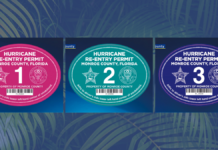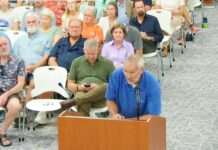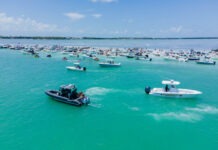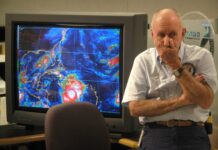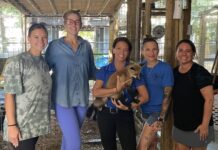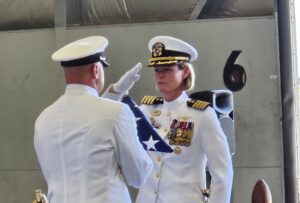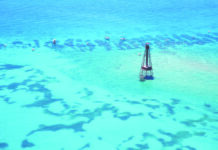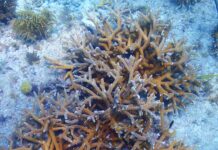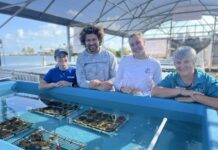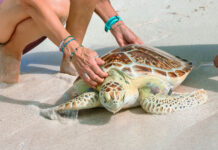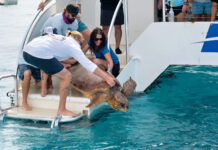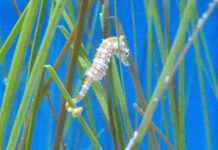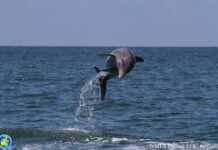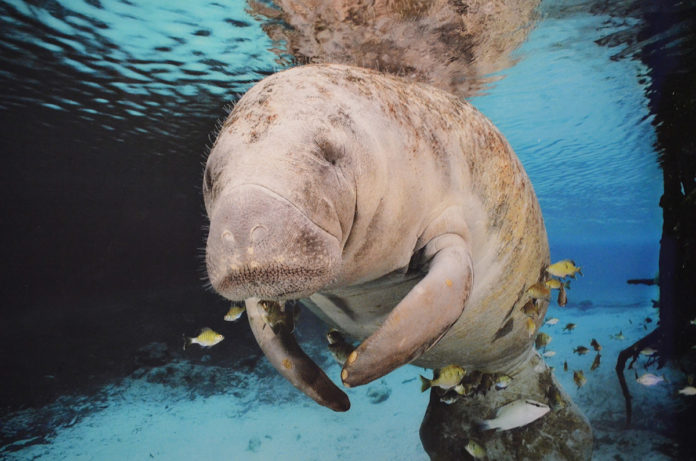
Florida’s beloved sea cows are once again in trouble. Thankfully, they have a host of friends ready to respond.
On Jan. 13, the U.S. Fish and Wildlife Service (USFWS) and Florida Fish and Wildlife Conservation Commission (FWC) hosted a media call to field questions about an ongoing Unusual Mortality Event (UME) for Florida manatees. The UME was declared in March 2021, and by the end of the year, a record 1,101 manatees had died. In response, USFWS and FWC established a unified command to bring additional resources to address the event.
According to Dr. Martine de Wit, a manatee research veterinarian, the mortality event primarily stems from starvation due to a lack of forage in the Indian River Lagoon. Persistent algae blooms caused by runoff from cities and farms can block light from reaching the lagoon’s floor, stunting seagrass growth.
“The Indian River Lagoon is basically a capital for manatees on the Atlantic coast,” said de Wit. “Most manatees on this coast spend a portion of the year in this lagoon, and this is why this event affects manatees all along this coast. This is an unprecedented event, and starvation is a chronic condition. Impacts on health can be long-lasting even when manatees survive.”
De Wit added that while the number of carcasses recorded by the program is about half of what it was around this time last year, Florida’s unseasonably warm winter has thus far allowed manatee populations to stay dispersed across larger areas. Dropping temperatures will soon restrict the manatees’ ability to travel great distances from warm water. Thus, mortality numbers are expected to increase as larger congregations of animals compete for limited food in smaller warm-water areas. The issue is compounded as starving animals lose body mass and become susceptible to cold stress in cooling waters that would not typically be problematic for them.
The UME has seen rescue and rehab partners scramble to find space for injured or starving animals, said Andy Garrett, chief of the effort, named the Joint Unified Command Rescue and Recovery Branch. In 2021, FWC’s program conducted a record 159 rescues; 115 of the rescued animals went to rehab facilities. In the last month alone, the program has conducted 23 rescues. The number of animals that require extensive rehab care – months or years, rather than days or weeks – is stretching 11 Manatee Rescue and Rehabilitation Partnership (MRP) facilities to their maximum capacities.
While several facilities are cooperatively attempting to generate space by improvising and moving or releasing animals in the coming weeks, Garrett made a point to credit SeaWorld for its rehabilitation efforts. “I wanted to really point out SeaWorld as one of the groups that really deserves a lot of recognition,” he said. “They have 35 manatees in house and are still making space. They’ve accepted a majority of the animals from this UME event and have treated them for release.”
In an effort to curb starvation in critical areas of the Indian River Lagoon, the unified command established a temporary field response station near Florida Power and Light’s Cape Canaveral plant in December and began a supplemental lettuce feeding trial shortly thereafter.
Joint Unified Command Provisioning Branch Chief Ron Mezich fielded questions on the experimental program, saying that while there were only a few animals near the warm water site at first, they began to see more in the weeks after Christmas as waters cooled slightly. Lettuce was first offered in a floating form, and at the time of the media call, Mezich said the manatees had not yet begun to recognize it as a food source – though from multiple facilities’ experiences feeding lettuce in captive rehab environments, this is not unusual.
“A supplemental feeding trial of this type in an aquatic system hasn’t been done before, so we don’t have a template to follow,” said Mezich. “We are adapting daily and trying different techniques.” Mezich said that the team will continue to offer the lettuce at different locations and different places within the water column.
When asked why the team has not yet attempted to provide other vegetation such as water hyacinth or hydrilla that are more readily recognized as a food source by wild manatees, Mezich said these native or invasive plants provide logistical challenges. “It takes time and effort, and the product we get on site will have to be cleaned to remove sediment and organisms that we don’t want to introduce,” said Mezich. “If you pile it on top of one another and haul it in a truck, the product we get isn’t always desirable to use as food. We know manatees will eat lettuce in captivity. It’s a clean product, it’s readily available, and we can store it.”
Mezich also touched on the seven manatee habitat restoration projects funded by the $8 million provided to FWC by Florida’s legislature in its last session.
“We need seagrass to plant for restoration projects, and typically what we do is find a donor bed nearby to supply those seagrass shoots, but there isn’t anything in the lagoon that we can use as a donor bed right now,” he said. “One of the projects is to build and enhance existing upland seagrass nurseries to grow seagrass shoots that will be used for planting once we get water quality to a consistent level.”
Mezich noted that two projects should start this upcoming spring, with five more in the permitting process. More information about the UME response, including weekly updates, is at https://myfwc.com/research/manatee/rescue-mortality-response/ume/.
As always, the public is reminded that interacting, feeding, or providing water to wild manatees outside of specially permitted activities is a violation of the Marine Mammal Protection Act and can have deadly consequences for these beloved mammals. Rescue teams rely heavily on public calls to FWC’s Wildlife Alert Hotline, used to report suspected injured or struggling animals. Concerns about any wild manatees should be directed to 888-404-FWCC (3922).

